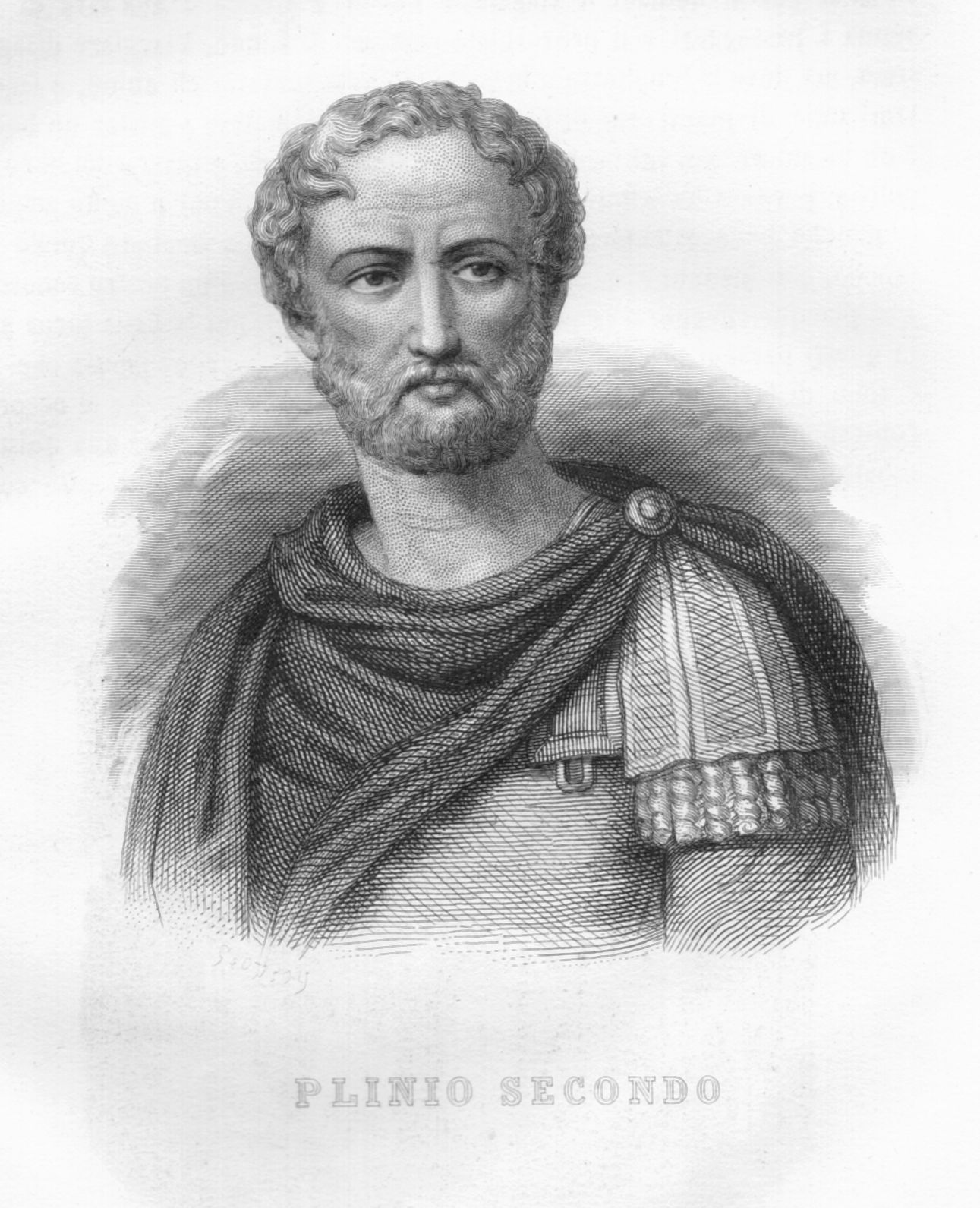Gaio Plinio Secondo frasi celebri
III, 9, 62
Litore autem Neapolis, Chalcidensium et ipsa, Parthenope a tumulo Sirenis appellata, Herculaneum, Pompei haud procul spectato monte Vesuvio, adluente vero Sarno amne, ager Nucerinus et VIIII p. a mari ipsa Nuceria, Surrentum cum promunturio Minervae, Sirenum quondam sede.
Storia naturale
citato in Claudio Malagoli, Etica dell'alimentazione: prodotti tipici e biologici, Ogm e nutraceutici, commercio equo e solidale, Aracne, 2006, p. 45
Frasi sul vino di Gaio Plinio Secondo
XX, 20; 1844, vol. 2, p. 18
Storia naturale
XX, 23; 1844, vol. 2, p. 22
Storia naturale
XX; 1844, vol. 2, p. 42
Storia naturale
XXII, 69; 1844, vol. 2, p. 256
Storia naturale
Gaio Plinio Secondo Frasi e Citazioni
“Non c'è libro tanto cattivo che in qualche sua parte non possa giovare.”
da Epistole, lib. III, ep. 5
citato in Fruttero & Lucentini, Íncipit, Mondadori, 1993.
Storia naturale
XXVI, 76; 1844, vol. 2, p. 570
Storia naturale
IX, 67; 1844, vol. 1, p. 896
Storia naturale
Origine: Plinio si riferiva con ogni probabilità all'orca, gli antichi infatti avevano dato a questo animale infatti il nome di "delfino montone" o "cetaceo montone". Alfred Edmund Brehm, La vita degli animali. Descrizione generale del mondo animale, Volume 2, Mammiferi, traduzioni di Gaetano Branca e Stefano Travella, Unione Tipografico-editrice torinese, 1872 p. 880 https://books.google.it/books?id=sZ3vcuUHjuUC&pg=PA880.
“Truovasi d'alcuni, che beendo latte d'asina si sono liberati dalle gotte de' piedi e delle mani.”
XXVIII; 1844, vol. 2, p. 712
Storia naturale
XXV, 21; 1844, vol. 2, p. 450
Storia naturale
XXVI, 64; 1844, vol. 2, p. 560
Storia naturale
Gaio Plinio Secondo: Frasi in inglese
“Why is it that we entertain the belief that for every purpose odd numbers are the most effectual?”
Book XXVIII, sec. 23.
Naturalis Historia
“Always act in such a way as to secure the love of your neighbour.”
Book XVIII, sec. 44.
Naturalis Historia
“When a building is about to fall down, all the mice desert it.”
ruinis inminentibus musculi praemigrant...
Book VIII, sec. 103.
Naturalis Historia
“The best plan is, as the common proverb has it, to profit by the folly of others.”
Book XVIII, sec. 31.
Naturalis Historia
“With man, most of his misfortunes are occasioned by man.”
Book VII, sec. 5.
Naturalis Historia
“It has become quite a common proverb that in wine there is truth.”
Book XIV, sec. 141.
Naturalis Historia
“With a grain of salt.”
Cum grano salis.
Book XXIII, sec. 8.
Naturalis Historia
“Fortune favours the brave.”
Fortes Fortuna iuvat.
Attributed by Pliny the Younger to his uncle during the eruption of Mount Vesuvius in which the Elder died
Quoted in [Pliny, translated by William Melmoth, Letters of Pliny, c.100 CE, eBook, 1927, Bibliobytes, Hoboken, NJ, English, ISBN 0585049971, LXV, to Tacitus http://www.gutenberg.org/files/2811/2811-h/2811-h.htm#link2H_4_0065, p. 48, Here he stopped to consider whether he should turn back again; to which the pilot advising him, "Fortune", said he, "favours the brave; steer to where Pomponianus is."]
Commonly quoted as "Fortune favours the bold".
“It is generally admitted that the absent are warned by a ringing in the ears, when they are being talked about.”
Absentes tinnitu aurium præsentire sermones de se receptum est.
Book XXVIII, sec. 5.
Naturalis Historia
“This is Italy, land sacred to the Gods.”
Haec est Italia diis sacra
Book III, sec. 46.
Naturalis Historia
“The only certainty is that nothing is certain.”
Fuller version: This series of instances entangles unforeseeing mortality, so that among these things but one thing is in the least certainthat nothing certain exists, and that nothing is more pitiable, or more presnmptuous, than man! In Latin: Quae singula inprovidam mortalitatem involvunt, solum ut inter ista vel certu sit nihil esse certi nec quicquam miserius homine aut superbius.
Book II, sec. 5.
Naturalis Historia
“The bird of passage known to us as the cuckoo.”
Book XVIII, sec. 249.
Naturalis Historia
“Let not things, because they are common, enjoy for that the less share of our consideration.”
Book XIX, sec. 59.
Naturalis Historia
